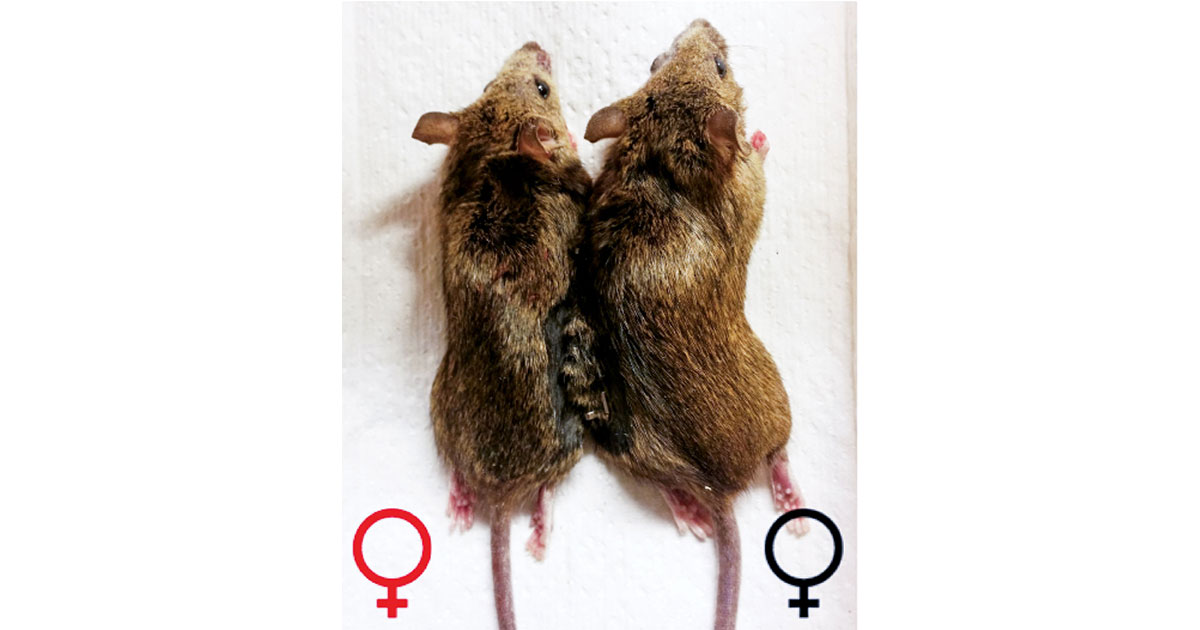Advertisement
Grab your lab coat. Let's get started
Welcome!
Welcome!
Create an account below to get 6 C&EN articles per month, receive newsletters and more - all free.
It seems this is your first time logging in online. Please enter the following information to continue.
As an ACS member you automatically get access to this site. All we need is few more details to create your reading experience.
Not you? Sign in with a different account.
Not you? Sign in with a different account.
ERROR 1
ERROR 1
ERROR 2
ERROR 2
ERROR 2
ERROR 2
ERROR 2
Password and Confirm password must match.
If you have an ACS member number, please enter it here so we can link this account to your membership. (optional)
ERROR 2
ACS values your privacy. By submitting your information, you are gaining access to C&EN and subscribing to our weekly newsletter. We use the information you provide to make your reading experience better, and we will never sell your data to third party members.
Biological Chemistry
Gene Deactivates Dicamba
Bacterial mechanism gives broadleaf crops a fighting chance against broadleaf weeds
by Raychelle Burks
May 28, 2007
| A version of this story appeared in
Volume 85, Issue 22

INEXPENSIVE AND EFFECTIVE, dicamba is the herbicide of choice to combat broadleaf weeds when raising grassy crops such as corn and wheat. Now, a research team at the University of Nebraska, Lincoln (UNL), has used genetic engineering to open the door to dicamba use in broadleaf crops as well (Science 2007, 316, 1185).

"Some of the biggest weed problems have to do with controlling broadleaf weeds in broadleaf crops like soybean, cotton, canola, and certain vegetable crops," says UNL researcher Donald P. Weeks.
After hearing from farmers that adding dicamba resistance to certain crops would be useful, Weeks and collaborators went to work. Soil offered a starting point.
"Dicamba is not persistent in soils," Weeks says. "It's rapidly degraded by microorganisms, so generally, dicamba cannot be detected one to three months after application." Scientists already knew that the bacterium Pseudomonas maltophilia (strain DI-6) degrades dicamba to CO2, H2O, and Cl- through a multistep enzymatic process. The first step—dicamba's conversion to 3,6-dichlorosalicylic acid (DCSA)—is where UNL researchers saw potential for rendering plants resistant to the herbicide.
The bacterial conversion of dicamba to DCSA involves a small electron-transfer chain comprising a reductase, a ferredoxin, and finally dicamba monooxygenase (DMO), which interacts directly with dicamba and O2 to yield DCSA.
Weeks and his coworkers found that insertion of the bacterial DMO gene conferred dicamba resistance to plants. A plant's own chloroplasts provide the rest of the electron-transport chain. That's why the researchers inserted a second gene whose product helps shuttle DMO to the transgenic plant's chloroplasts.
Initial transgenic crop studies conducted at UNL's greenhouse provided what Weeks calls "the eureka moment." Transgenic broadleaf tobacco plants displayed impressive dicamba resistance, while nontransgenic plants fell victim to dicamba's effects.
At a UNL research farm operated by Weeks's collaborator, plant scientist Thomas Clemente, a test crop of transgenic soybeans displayed superior resistance to dicamba without loss of crop performance or yield.
The mechanism behind the dicamba resistance is unique. Other herbicide resistance mechanisms, such as those employed in special crops that can withstand the weed-killer Roundup, render plants essentially immune to the herbicide rather than arming the plant with new defense capabilities, as Weeks's group has done.
With the help of UNL's Office of Research Technology Development, researchers at Monsanto, which manufactures Roundup, learned of this work. Now, Monsanto and UNL are collaborating to make available to farmers broadleaf crops that are resistant to dicamba rather than vulnerable to its herbicidal effects. This, in turn, could open more opportunities for herbicide rotation and mixing, which makes it harder for weeds to develop resistance against particular herbicides, plant scientists say.




Join the conversation
Contact the reporter
Submit a Letter to the Editor for publication
Engage with us on Twitter